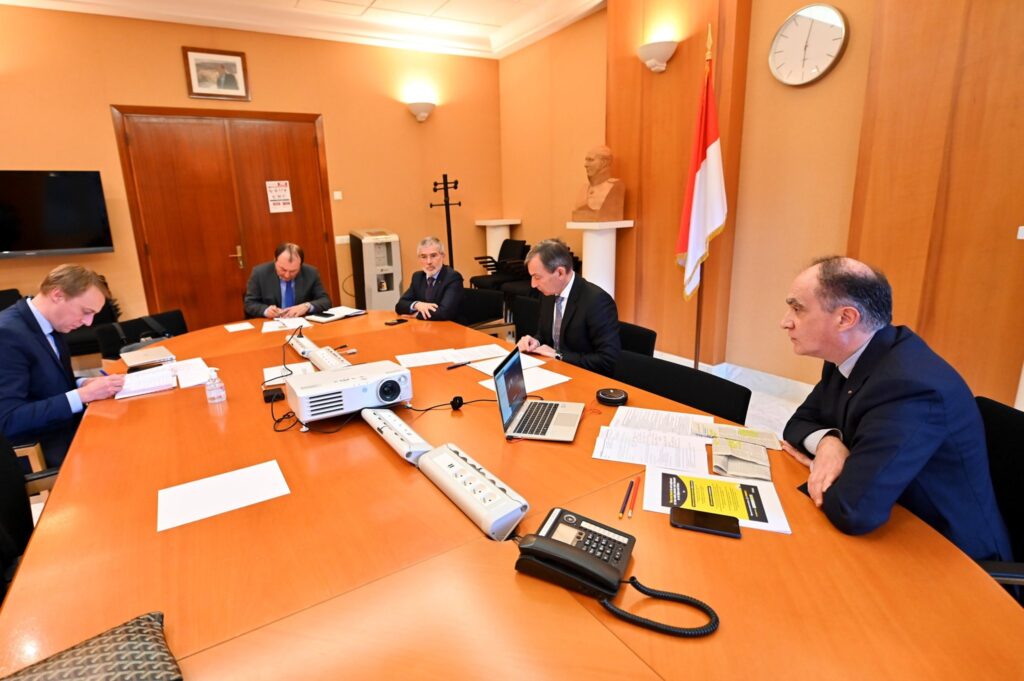Coronavirus: Monaco giving a helping hand to workers and businesses

The Prince’s Government announced yesterday a series of economic measures for workers and businesses who have been impacted by the health crisis.
The Prince’s Government wants to give as much help as possible to the workers most affected by coronavirus lockdown. To this day, 21,650 works have been placed under “temporary unemployment.” Between 2,000 and 2,500 self-employed workers have been left without income. In response to these unexpected circumstances, the Monaco authorities have implemented a range of support measures.
Resorting to temporary unemployment
These measures, which intend to support the situation of the state’s employees, 75% of whom live outside the Principality, have been requested by 2,625 employers and will affect 21,650 workers. This equates to 40% of the working population in Monaco. The government will reimburse employers up to 80.6% of each employee’s net salary. Cost: €50 million a month.
A helping hand to the lowest earners
Where the wage is up to €1,800, the government has guaranteed that an employee will receive 100% of his salary in place of 80%. This concerns roughly 9,000 workers and will allow them, in effect, to keep the entirety of their wage. Cost: €1.6 million a month.
A minimum wage for the self-employed
Self-employed workers in the Principality will be able to receive a minimum wage of €1,800 a month, provided by the General Treasury of Finances. Cost: €3 million per month (based on the estimation that between 2,000 – 2,500 workers will apply for it.)
Temporary workers
6,000 temporary workers have felt the full force of the economic issues linked with the crisis as they are not eligible for temporary unemployment measures. To ease their situation, the State plans to make advance payments to temp agencies for holiday pay where it is due.
Special bonuses paid for by private sector
The Government is asking for a total exemption from charges on the amount of the premium paid. Discussions are yet to be held between company owners.
Exemption from commercial rents
For state-owned premises, March rents will be reimbursed. Rent for the next 3 months will be fully exempt. Concerning private commercial renting, the government has decided to take action with various landlords to make them aware of this crisis.
Cash flow for very small businesses
As the government cannot provide money directly, it will immediately place an amount initially set at €50 million for the smallest businesses via banks. Entrepreneurs can receive a sum of up to €50,000 to pay the salaries or rent which constitute their main fixed costs. These amounts lent by the banks are guaranteed by the State. This means that if the borrower cannot pay it back, the State will ensure the repayment. For the bank, the risk is therefore zero.
No social security charges on salary supplements
In the context of temporary unemployment measures, employers who pay the additional 20% of their employees’ wages for them to receive 100% of their salary will be exempt from social security payments on this additional percentage.
Working from home becomes compulsory when it is possible
993 companies in the Principality have adopted distance working. This currently affects 10,381 employees compared to 1,300 before the COVID–19 crisis. Working from home was becoming the norm but is now compulsory. This means that each refusal will have to be justified.
Ban on dismissals during the health crisis
The Prince’s Government, in agreement with the National Council, has decided to make dismissal impossible except in cases of proven misconduct.
The cost of these measures intended to support all those involved in Monaco’s working world will be examined by the Government Council, before being presented to the National Council in the form of an exceptional draft amending the budget.
The amount of this additional expenditure is estimated for the coming quarter at €280 million, added to an expected drop in revenue of around €180 million.













